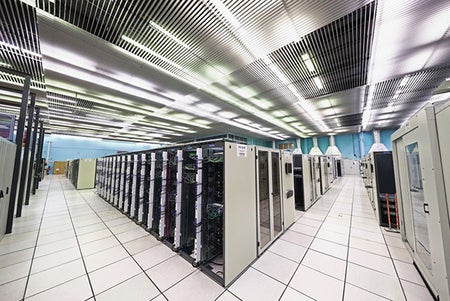
World's Most Powerful Particle Collider Taps AI to Expose Hack Attacks
Machine learning is crucial to staying ahead of hackers trying to break into at CERN’s Large Hadron Collider’s (LHC) massive worldwide computing grid

World's Most Powerful Particle Collider Taps AI to Expose Hack Attacks
Machine learning is crucial to staying ahead of hackers trying to break into at CERN’s Large Hadron Collider’s (LHC) massive worldwide computing grid
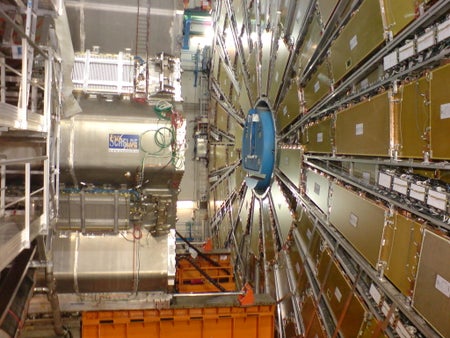
China, Japan, CERN: Who Will Host the Next LHC?
Labs are vying to build ever-bigger colliders against a backdrop of uncertainty about particle physics

Hope for a New Particle Fizzles at the LHC
A curious signal of a potentially revolutionary new particle detected last year turned out to be a fluke
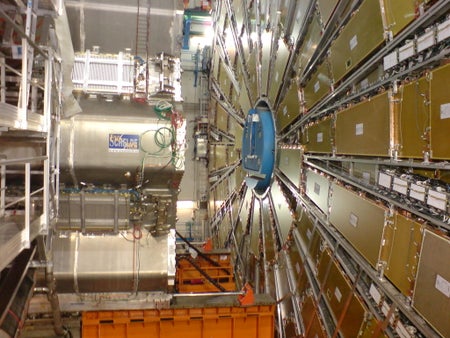
Large Hadron Collider Anomaly Inspires a Zoo of Theories
Four published papers offer diverse explanations for a possible new particle
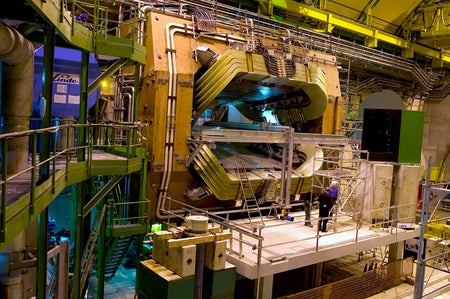
New Tetraquark Particle Sparks Doubts
The Large Hadron Collider particle accelerator failed to confirm the Tevatron accelerator’s discovery of a new arrangement of quarks
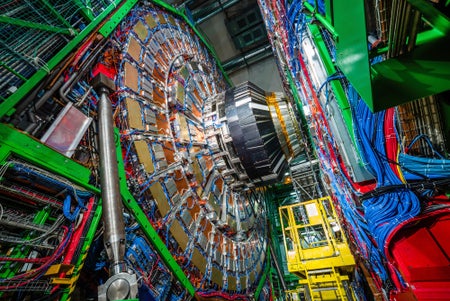
Hints of New LHC Particle Get Slightly Stronger
One fresh analysis keeps alive physicists' hope for a breakthrough, but another is disappointing
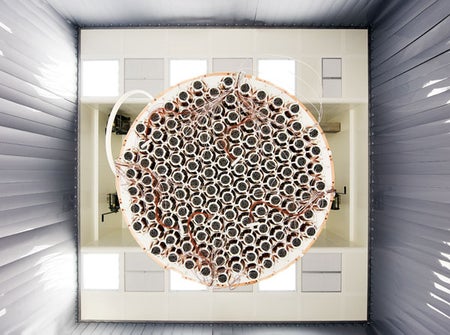
Last Call: Will WIMPs Show Their Faces in the Latest Dark Matter Experiment
The most sensitive detector yet revs up in March—and there’s a lot on the line
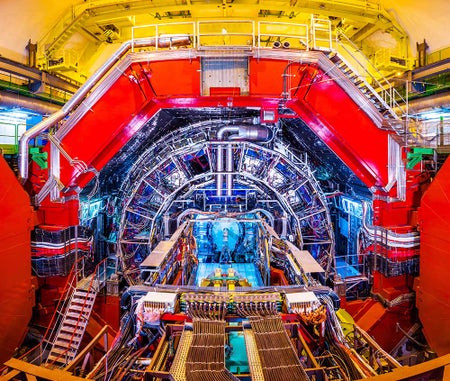
What 2016 Holds for the Mysterious World of Physics
Here are some of the things physicists are most excited for in the coming year
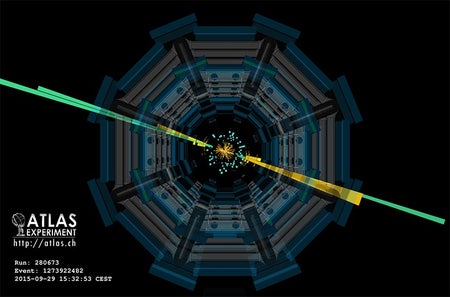
Potential New Particle Sparks Flood of Theories
Physicists have produced nearly 100 papers on the latest tantalizing results from the Large Hadron Collider

CERN's Next Director-General on the LHC and Her Hopes for International Particle Physics
Fabiola Gianotti talks to Nature ahead of taking the helm at Europe's particle-physics laboratory on January 1
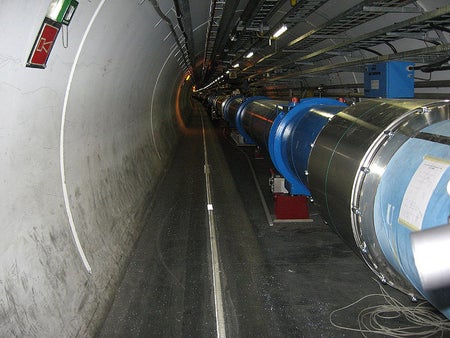
Artificial Intelligence Called In to Tackle LHC Data Deluge
Algorithms could aid discovery at the Large Hadron Collider, but raise transparency concerns
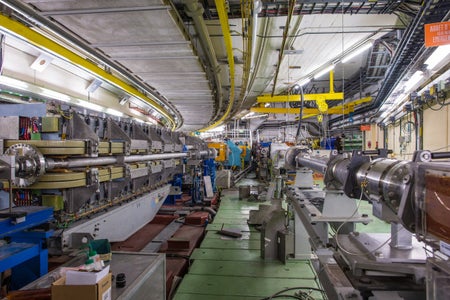
CERN Prepares to Test Revolutionary Mini Accelerator
Machines that "surf" particles on electric fields could reach high energies at a lower price